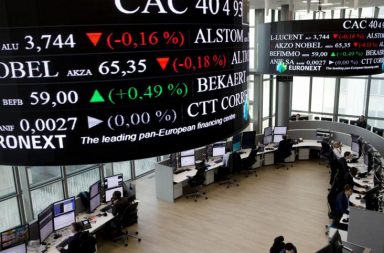On Tuesday, U.S. stocks declined in late morning trading, with the Dow Jones Industrial Average trimming more than 150 points as tensions around North Korea continue to heighten. North Korea on Sunday conducted its sixth nuclear test, which it said was of an advanced hydrogen bomb for a long-range missile, marking a drastic advance of the regime’s stand-off with the United States and its allies.
“It looks as though escalation has gone to the next level, but there are lot of things in the coming weeks that may be causing people to get a little bit more cautious,” stated Randy Frederick, vice president of trading and derivatives for Charles Schwab.
Wall Street may be in for a tough ride this month, which is historically the worst month for stocks, if there is a showdown in Washington over the U.S. budge and the federal debt ceiling.
On Tuesday morning, the Dow Jones Industrial Average dropped 167.01 points, or 0.76 percent, at 21,820.55 and the S&P 500 declined 11.95 points, or 0.48 percent, at 2,464.6. The Nasdaq Composite fell 29.90 points, or 0.46 percent, at 6,405.43.
Nine of the 11 major S&P sectors dropped. Financial stocks led the decliners, dropping 1.46 percent, after an influential Federal Reserve policymaker struck a dovish sentiment on interest rates.
Fed Governor Lael Brainard stated U.S. inflation is falling “well short” of target so the central bank should be cautious about increasing interest rates any further until it is optimistic that prices are moving higher.

THE MORNING REPORT
Start your workday the right way with the news that matters most.
Your information is 100% secure with us and will never be shared Disclaimer & Privacy Policy
“As far as interest rates go, everyone’s on a holding pattern to see what happens. No one’s expecting a September rate hike anyway, but we’ve got a lot of data until December that could change the chances of a rate hike,” Frederick reported.
Also, data displayed new orders for U.S.-made goods recorded their biggest decline in nearly three years, but orders for capital goods were stronger than previously reported, pointing to healthy business spending at the beginning of the third quarter.
Declining issues outnumbered advancers on the NYSE by 1,674 to 1,046. On the Nasdaq, 1,671 issues dropped and 1,082 increased.
 D. Marie
D. Marie 



